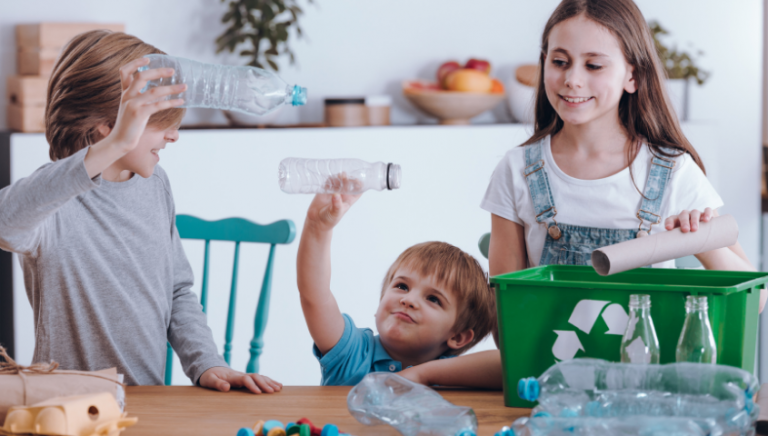A Perth start-up came up with a creative circular solution to recycle coffee grounds into new products and offset drinkers’ coffee habits. 75% of Australians are avid coffee drinkers but not many of us realise how much waste our latte habit can create (AgriFutures Australia, 2021).
Donut Waste is on a mission to save coffee grounds from going to landfill and it does it in smart innovative ways (Donut Waste, 2022). According to Donut Waste (2022), a busy café can produce around two 120l bins of coffee grounds per week. This equals 8.7 tonnes of coffee waste or 104 bins per year from just one venue.
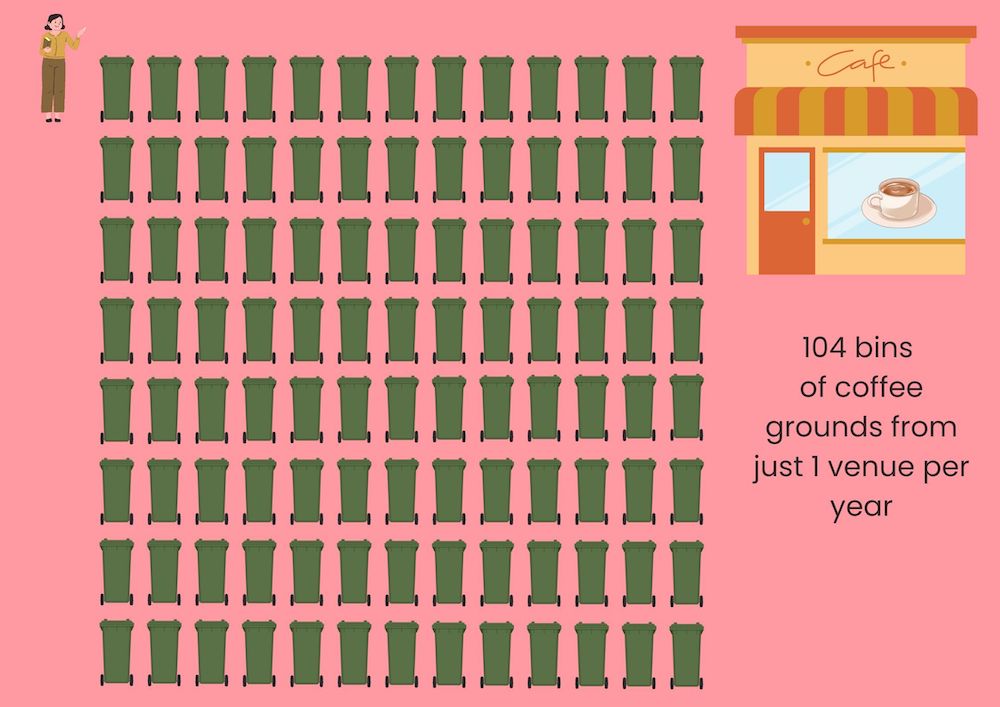
“Australia has one of the most depleted soils in the world so diverting coffee grounds from landfill to a nutrient-rich compost is a no-brainer,” says Miss Hornakova the founder of Donut Waste.
One way the local enterprise deals with coffee waste is by taking it for composting to community gardens to enrich our soils instead of contributing to methane production (Kemp K.C. et. al., 2015). In 2018 coffee was the second largest commodity worldwide so finding a solution to its waste should be our concern (Janissen B. & Huynh T., 2018).
Who’s going to save us?
In 2019, the Western Australian government announced the intention to roll out Food Organics Garden Organics (FOGO) bins within all Australian councils by 2025 (Government of Australia, 2019). This addresses the fact that organic waste makes up 40-60% of general waste bins and is responsible for approximately 3% of Australia’s greenhouse gas emissions (Department of Climate Change, Energy, the Environment and Water, 2022).
Unfortunately, what FOGO doesn’t address is the need for the commercial sector to remove organic waste from their landfill bins. So far, the future of organic waste services for companies remains unclear. Some councils have chosen to offer FOGO for commercial venues already while others like the City of Vincent have moved away from providing commercial waste services altogether (City of Vincent, 2022).
That’s where a small local waste business can fill in the gap with niche waste offerings. Last month, Perth’s social enterprise launched its first products – coffee soaps and body scrubs made using spent coffee grounds collected from local cafes.
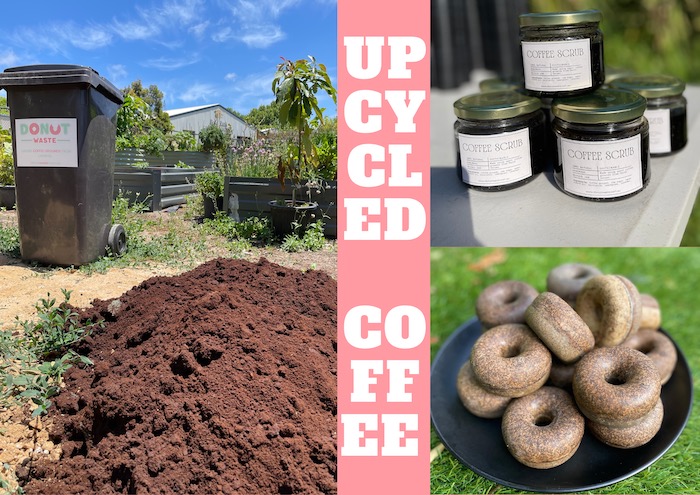
“Our vision has always been to reduce the effect of climate change, but the educational component of our work is no less important. Inspiring others to think outside of the box and to act on climate change is what we hope to achieve with our upcycled products,” says Sharka the founder of Donut Waste.
Surprisingly versatile waste
The idea of upcycling coffee waste into products is not new. Other companies around the world saw the opportunity with spent coffee and decided to do something about it.
In the UK, a company called bio-bean has established a growing business collecting spent coffee grounds from across the UK and upcycling them into a range of bio-based products, including their beautiful Coffee Logs that burn 20% hotter than wood and reduce greenhouse gas emissions by 130% (bio-bean, 2022).
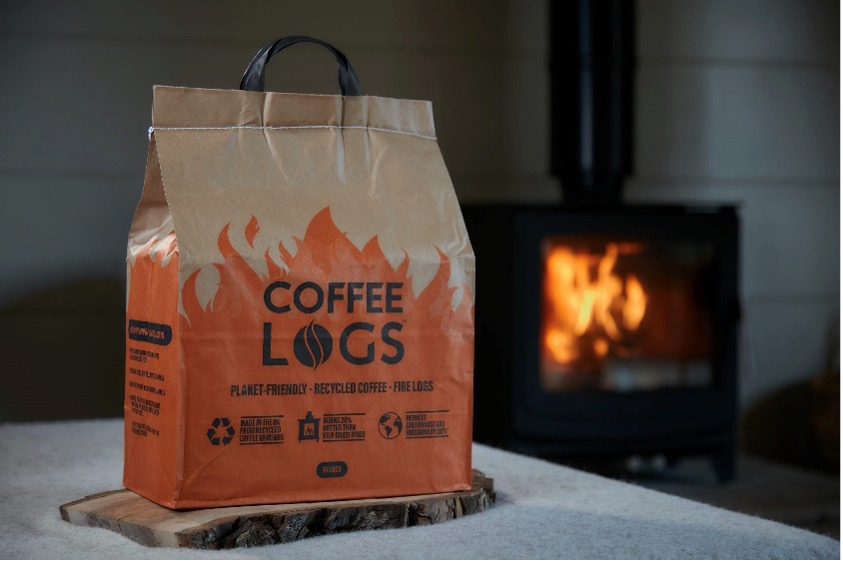
Melbourne company Reground has been collecting coffee grounds since 2016 and delivers free ground coffee and chaff to local community gardens and keen home gardeners (Reground, 2022). Their Social media post states that by September 2021 they collected 700,000 kilos of grounds and chaff (Reground, 2021).
In 2021, another coffee recycling company called Ground Up emerged in Ballarat, Victoria and their recent Instagram post announced 80,000 kilos diverted from landfills (GroundUp, 2022).
All these business models are set up on the same concept – charging hospitality vendors for collecting coffee waste and delivering them to a local end-user for composting or upcycling them into a new valuable product.
Waste coffee not!
Unlike food waste, coffee waste can’t be avoided unless we stop drinking coffee. According to the National Food Waste Strategy, the second-best option is to donate the surplus to charity (this could only apply to unused grounds) or repurpose grounds without processing for animal feed, the third best is to compost to enrich the soil, the fourth-best to reprocess e.g., into making soaps, fifth-best to use in energy recovery such as anaerobic digestion or biofuel (Commonwealth of Australia, 2017).
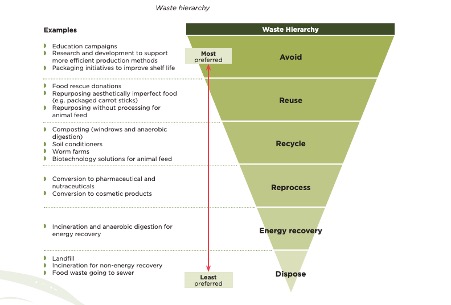
bio-bean has been operating the longest (since 2013) and has undertaken extensive research into coffee waste valorisation, even producing biodiesel to power London buses (Waste Management Review, 2017). (The fourth best output according to the EPA waste hierarchy.)
They have subsequently moved their focus to material applications that have a greater CO2e impact, with their product Inficaf being used in the (bio) plastics, cosmetics and automotive friction industries (bio-bean, 2022).
Originally, Donut Waste was set on producing a product similar to bio-bean’s Coffee Logs, but after careful consideration and consultation with bio-bean, they decided against it (S Hornakova 2022, pers.comm., 12 October).
George May, the managing director of bio-bean explains, “We were lucky to secure a large retail customer for our Coffee Logs early on. UK legislation is set up to support solid biomass fuels as a viable commercial option. It took us a long time to tweak our machinery to produce the high-performance log you see on the market today.” (G May 2021, pers.comm., 1 October)
According to Donut’s founder, their number one competitor is landfill and the biggest challenge is the distances between venues as WA is spread out. Then the lack of knowledge of cafe owners about the solution and why it’s so important to keep our organics out of landfill (S Hornakova 2022, pers.comm., 12 October).
“In this already challenging market ridden with pandemics and raising prices of everything, it comes down to the business bottom line. And until the landfill levy remains low, the decision to sign up with us instead of chucking grounds into landfill will be a tough one”, says Miss Hornakova.
Since 2021, Donut Waste collected 24,654 kilos of coffee grounds which translates into 1,369,667 coffees saved from landfill (Donut Waste, 2022).
REFERENCE LIST
- bio-bean 2022, About Coffee Logs, bio-bean, viewed 7 October 2022, <https://www.bio-bean.com/coffee-logs>.
- bio-bean 2022, Other Innovations, bio-bean, viewed 13 October 2022, <https://www.bio-bean.com/naturals/other-innovations/>.
- City of Vincent 2022, Waste & Recycling, City of Vincent, viewed 9 October 2022, <https://www.vincent.wa.gov.au/residents/waste-recycling.aspx>.
- Commonwealth of Australia 2017, National Food Waste Strategy: Halving Australia’s food waste by 2030, Commonwealth of Australia, viewed 9 October 2022, <www.dcceew.gov.au/sites/default/files/documents/national-food-waste-strategy.pdf>.
- Department of Climate Change, Energy, the Environment and Water 2022, Recovering organic waste, Department of Climate Change, Energy, the Environment and Water , viewed 7 October 2022, <https://www.dcceew.gov.au/environment/protection/waste/food-waste/recovering-organic-waste#:~:text=Bin%20audits%20have%20shown%2040,to%20landfill%20is%20organic%20waste>.
- Donut Waste 2022, Facebook post, Donut Waste, viewed 9 October 2022, <https://www.facebook.com/photo/?fbid=540448214752423&set=a.46211112925279>.
- Donut Waste 2022, Welcome fellow human, Donut Waste, viewed 2 October 2022, <https://www.donutwaste.com.au>.
- Donut Waste 2022, Instagram post, Donut Waste, viewed 16 October 2022, viewed 9 October 2022, <https://www.instagram.com/p/CjwevmoBre7/>.
- Government of Western Australia 2019, New three-bin system the centrepiece of Waste Strategy, Government of Western Australia, viewed 7 October 2022, <https://www.mediastatements.wa.gov.au/Pages/McGowan/2019/02/New-three-bin-system-the-centrepiece-of-Waste-Strategy.aspx>.
- GroundUp 2022, Instagram post, GroundUp, viewed 9 October 2022, <https://www.instagram.com/p/CitEYT7hvhR/>.
- Hornakova, S. cited in Australia State of the Environment 2021, Soil, Department of Agriculture, Water and the Environment, viewed 7 October 2022, < https://soe.dcceew.gov.au/land/environment/soil#-assmt-lan-03-assessment-soil-health>.
- Janissen B. & Huynh T. 2018, Chemical composition and value-adding applications of coffee industry by-products: A review, Resources, Conservation and Recycling, Volume 128, 2018, Pages 110-117.
- Kemp K.C. et. al. 2015, Nanotechnology 26 385602.
- Reground 2022, Coffee for your garden, Reground, viewed 30 September 2022, <https://www.reground.com.au/coffee-for-your-garden>.
- Reground 2021, What a year it’s been for Reground Collections!, Facebook post, Reground, viewed 2 October 2022, <https://www.facebook.com/regroundcompany/photos/a.569272413262576/1724722594384213/>.
- Waste Management Review 2017, Coffee waste powers London’s red buses, Prime Creative Media, viewed 2 October 2022, <https://wastemanagementreview.com.au/coffee-waste-powers-londons-red-buses/>.

